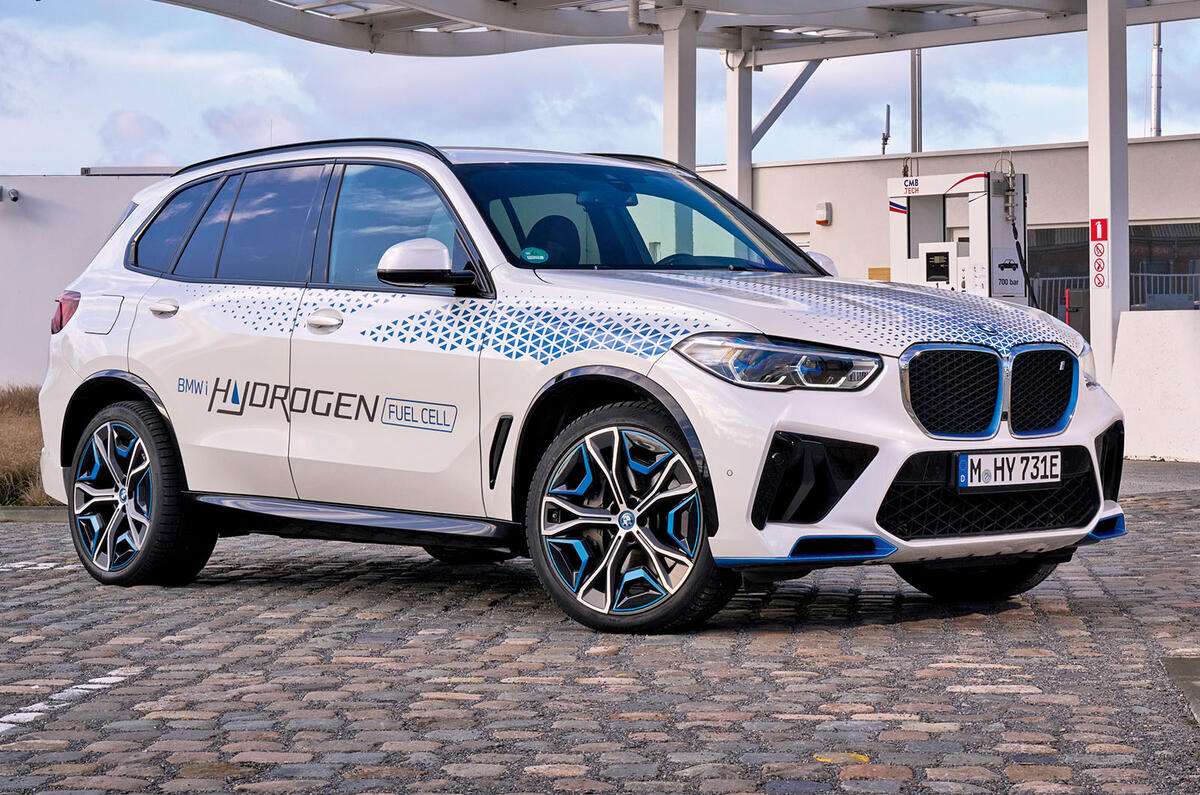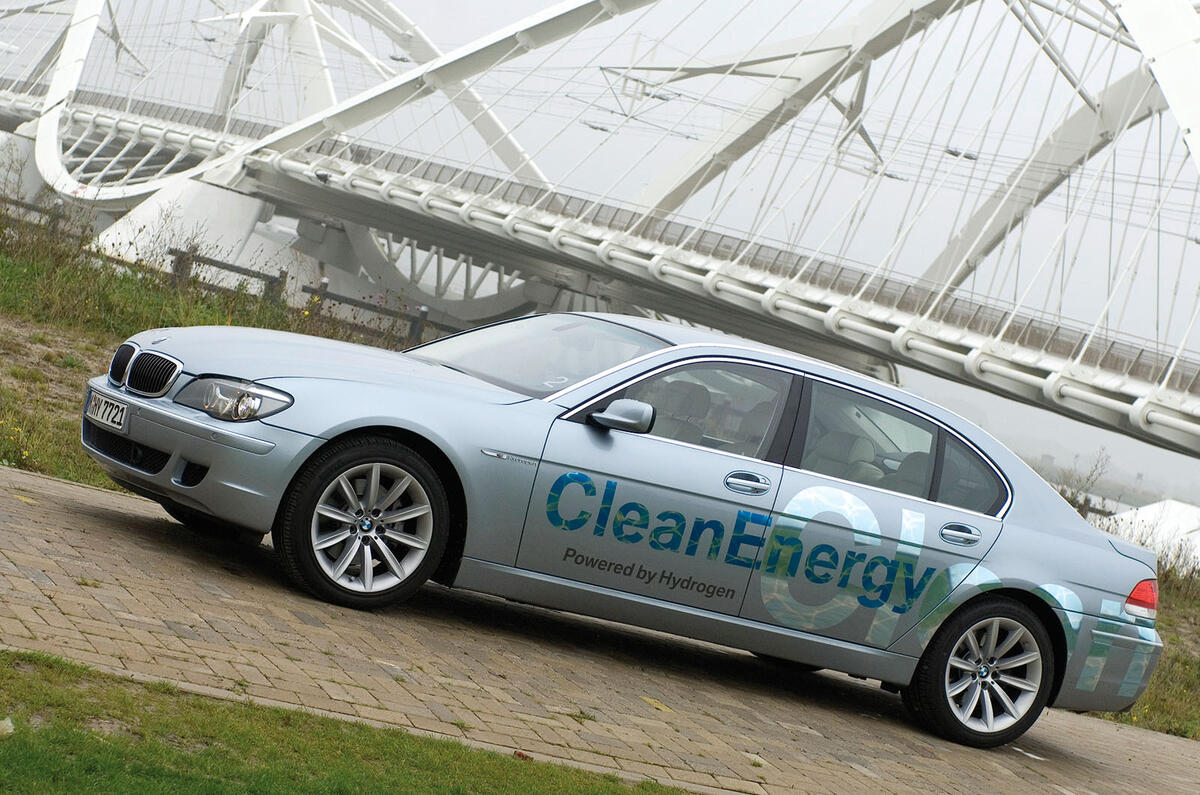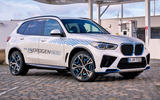BMW’s first publicly available hydrogen fuel cell car is “probably going to [arrive] in the second half of the decade”, according to the project’s chief engineer, Jürgen Guldner.
Speaking in Antwerp, where the company presented a small pilot fleet of fully functional, fuel cell iX5 SUVs to journalists and politicians, Guldner said BMW is “waiting for the tipping point of the [refuelling] infrastructure”, putting emphasis on the European Union’s Alternative Fuels Infrastructure Directive, which could soon attain full Regulation status.
Such a change in status would be significant because it would mandate the installation of truck-specific refuelling stations every 150km (93 miles) along arterial routes. In time, these could provide the skeleton of a widespread high-pressure passenger car refuelling network.
It’s one reason why Guldner views the emergence of fuel cell cars (FCEVs) as only “a matter of time”. He said: “The scaling for battery-electric cars will reach some limits and the limits will be different in different countries. It could be raw materials. It could be infrastructure.” In Europe, he suggested, a “significant minority” of cars could be FCEVs.
Although he was unwilling to reveal the overall build cost of each of the hand-assembled iX5s, Guldner said FCEV powertrain prices are currently high not because of raw materials but because of low volumes and this will change.
“We’ve [already] seen a pretty sharp decline in cost in the last few years,” he said. Guldner also pointed out that the portion of raw materials needed for FCEVs is much lower than for BEVs, meaning FCEVs will be less vulnerable to the volatility in the market.
Internal studies at BMW show that cost parity with BEVs is “absolutely possible” in the next decade. At that stage, the convenience and long-distance capabilities of FCEVs will be their selling point.
However, the form that any series-production FCEV BMW eventually takes remains unknown. Guldner says something BMW X5-sized suits the technology but, whatever the model, full powertrain interchangeability is planned.
“We’re going to develop tanks that look different to [the T-shaped tanks inside the iX5] and that will fit in the design space of the battery of a battery-electric car,” said Guldner. This approach will apply to the upcoming BMW Neue Klasse range, which is due in 2025.












Join the debate
Add your comment
Another Autocar "Pie In The Sky" article about hydrogen. Last week it was Element 2 Limited building H2 refuelling stations with £100 million they don't yet have and getting supplies from IEOS Runcorn "byproducts."
If that "byproduct can be commercialised, INEOS already have the resources to do it themselves.
This week it's BMW X5's prototypes powered by a fuel cell that they have bought from Toyota.
I get paid more than $200 to $400 per hour for working online. I heard about this job 3 months ago and after joining this I have earned easily $30k from this without having online working skills .e Simply give it a shot on the accompanying site…
Here is I started.…………>>www.jobsrevenue.com
2030, will that be in the morning or afternoon. On a serious note BMW are just playing games after seeing how many billions have been wasted on the hydrogen car. Honda pulled out last, shell pulled out hydrogen stations this year, and that's before hydrogen hit £15 a kg. The BEV won, the hydrogen car blew billions on wasted research and incentives trying to get people on board. Hydrogen cars went pop.
Hahahaha! You think you're smart! While you keep whining like a little bitch we're already doing it!
You shoud banned asap you sad little keyboard warrior. Already doing it, what are you on, helium?